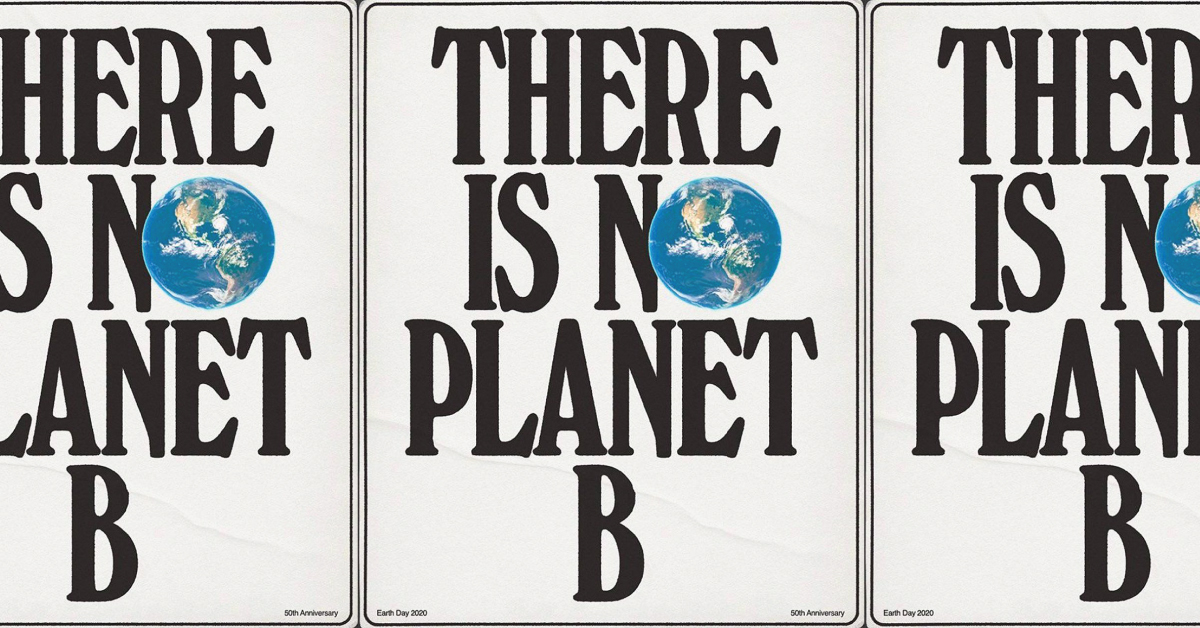New Year’s Resolutions About Your Carbon Footprint: Performative or Productive?
It’s 2021! We celebrated the new year over Zoom, we wrote down some resolutions, and we have (eh, pretty much) stuck to them so far. As usual, my resolutions included things like call my parents more and read more books. For the first time, they also included some intentional choices to reduce or offset my carbon footprint, and I’m not talking about just using metal straws and carrying my groceries in the cutest tote bag around. As we enter Biden’s presidency with a renewed national focus on climate change and a path geared towards a more sustainable world, space is created to examine our individual consumption habits.
You might be thinking: wait, wait, wait, you’re just one person, your emissions are pretty much negligible, or isn’t this sort of thinking counterproductive to holding corporations accountable? You might also be thinking about last November when AOC and Greta Thunberg blasted Shell for tweeting a poll about individual choices to reduce emissions:


They’re both right. Twenty fossil fuel companies have contributed 35% of global carbon emissions since 1965. It’s undeniable that curbing carbon emissions requires systemic change, the action of governments and multinational organizations. However, despite these tweets, Thunberg and Ocasio-Cortez both encourage individuals to fly less. While the rhetoric of individual choices does seem manipulative when coming from Shell, rejecting the role of individual behavior altogether creates an unhelpful false dichotomy. We have to embrace individual behavior changes and systemic change simultaneously to solve the climate problem. As macro-level changes are made in the forms of subsidies and taxes, it will be up to individuals to embrace them: buying electric vehicles, opting for modest shifts in diet, choosing rail travel over flight. So if you’re on the fence about focusing on your own carbon footprint, allow me to flesh out a couple of arguments in favor of reducing your emissions.
The Moral Argument
Many arguments in favor of becoming more eco-friendly at a household level focus on how individual actions add up to collective action; essentially, that the decisions of individuals can influence others and eventually shift a culture. Making an argument for an individual in isolation proves much harder. However, one case to make is that personal emissions are morally wrong. John Broome, a climate ethicist, makes a pretty simple argument about why we should try to reduce and offset our carbon footprint in his book Climate Matters: Ethics in a Warming World.
The argument is as follows: our personal emissions cause some amount of harm, as they contribute to global warming, which causes damage, shortens lives, etc. The harm is unjust because it’s something that we do, rather than something we don’t do (basically, this isn’t the same thing as not donating to charity– we’re taking an action and it is causing harm). Further, we know that it causes harm (most people know about the greenhouse effect at this point, and if you’re reading this article, you know about the greenhouse effect), and we do it anyway.
Even further, the consequences of emissions are not reciprocal between the poor and the rich (the poor are disproportionately harmed), and most people emit for their own benefit. Finally, this harm can be easily avoided by reducing or offsetting our own emissions. Reducing and offsetting is the only path to righting this injustice, since there is no way to directly compensate those we’ve harmed (especially since many of them haven’t been born yet).
This line of thinking is mostly targeted at wealthier people that are able to reduce and offset their emissions. To participate and live in society, it is pretty much impossible to reduce all of your emissions to zero. An MIT study found that the smallest carbon footprint of an American individual was that of an unhoused person who lived in shelters and ate in soup kitchens, but still emitted 8.5 tons of carbon per year. This moral argument is more directed at those who are easily able to reduce and offset their carbon footprints. An Oxfam study found that the richest one percent of the world are responsible for twice as much carbon pollution as the poorest half of the world. Essentially, if you want to right an injustice this year, think about how you can cut down on your carbon footprint.
The Collective Action Argument
Alright, so we’ve all had the peer pressure talks in middle school and high school, likely countless times over. But the truth is, human beings are wildly influenced by what other people think of them and what the people around them are doing. So what if, instead of if you drive a Range Rover, you’re cool, it was, if you take the bus to work, you’re cool? Individual sustainability choices can cause drastic shifts in community behaviors. Here’s one study conducted in California that found that if one house installed solar panels, the probability of neighboring houses doing the same increased. Greta Thurnberg popularized “flight-shaming” in Europe, encouraging people to cut down on air travel, and Germany and Sweden showed a measurable decrease in flight activity.
Further, one action can beget more actions, or increase personal interest in climate problems and the systemic levels of change. For example, if you buy an electric car for the subsidy, maybe you become interested in the installation of charging stations across the country. You have the electric car now, it makes sense that you would want to be able to drive it anywhere. This could lead to becoming interested in the measures being taken to decarbonize our energy grid, or to vote for politicians with more comprehensive net zero energy plans.
At the very least, making decisions to reduce your carbon footprint can generate conversations about climate change and the environment with your family, friends, and community. The Yale Climate Communications Program found that nationally, only 35% of adult Americans “discuss global warming at least occasionally.” By redirecting attention onto climate change, its consequences, and the individual means to combat it, we can spur interest in voting for and finding systemic solutions.
So What Can You Do?
There are a lot of different routes that individuals can take to reduce their carbon footprint and even more are on the way as technology advances and government subsidies incentivize sustainable living. For now, the most “effective” methods are to cut down on meat consumption and food waste, find ways to conserve energy or use renewable alternatives, fly less and use mass transit more. Another increasingly popular method to reduce your carbon footprint is through offsetting, which often means you pay for projects that reduce greenhouse gas emissions (i.e., preventing deforestation) elsewhere. This method is somewhat controversial because there are a lot of “bad” (read: ineffective) offsetting programs out there, but it can still be a necessary and critical tool for fighting climate change. I hope that this article encourages you to make some resolutions about reducing your footprint, so let’s get to your Call To Action:
- Calculate your carbon footprint with this handy calculator from Nature
- Set some goals to reduce your emissions and check out these ideas from The New York Times’ “How to Reduce Your Carbon Footprint”
- Sign up your house or your family’s house for this EPA program and compete against other, similar houses to be more energy efficient
- Like the stuff I talked about? Check out Climate Matters to get a little philosophical, or this essay in The Atlantic that goes more in depth on the importance of individual behavior changes
- Want an argument against this sort of perspective? Check out this essay by s.e. smith that denounces performative environmentalism

–Sophia Marusic, Content Creator






